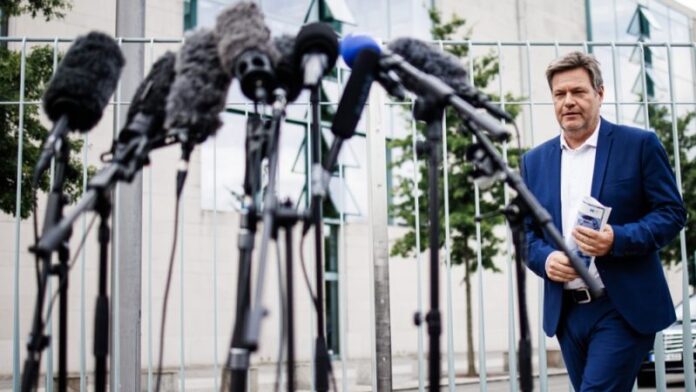Berlin has been making “good progress” in its talks with the European Commission on the potential scope of national subsidies for hydrogen power plants, according to German Economy and Energy Minister Robert Habeck, according to Euractiv.
In a bid to decarbonise its power sector and ensure the provision of climate-friendly energy even during lulls in wind and solar power production, the German government is looking to significantly ramp up the country’s fleet of hydrogen power plants.
But the significant tenders required to reach this goal represent national state aid, which needs to be greenlighted by the EU due to its potential to distort the common market.
“A climate-neutral power sector is the backbone of decarbonisation of the other sectors, because all other sectors will use more electricity in the future than they do today,” Habeck said in a statement on Tuesday.
While “renewables, flexibility in the system and storage” are important pillars of this effort, according to the Green minister, controllable power will also play a key role “in some hours of the year” – namely, in times with little wind and sun.
“The conversion and decarbonisation of the fossil-fuel-based power plant fleet is, therefore, the next important step,” he stressed.
According to Habeck, the ministry’s talks with the European Commission over the past months have “achieved important progress on the framework for future hydrogen power plants”.
However, the ministry stressed, this “first important step” does not yet mean that the measures it envisages have been formally approved under state aid rules, but only “sets out the guard rails” for how far Berlin can go in terms of tendering new power plant capacity.
Specifically, the government aims to tender 8.8 GW of new power plants that should run on hydrogen from the start, in addition to 15 GW of plants that can temporarily run on natural gas and should be connected to the hydrogen grid by 2035 at the latest.
As a next step, the ministry will now launch a “consultation phase,” set to start at the end of summer, during which state aid proceedings with the European Commission will be continued.
The push for state aid also comes in the context of Germany’s revamped hydrogen strategy presented last Wednesday.
While the strategy places heavy emphasis on imports from Denmark and Norway, it also aims to ramp up domestic production of climate-friendly hydrogen through electrolysis and sets the goal of 10 GW of electrolyser capacity by 2030 – double the 2020 target.


